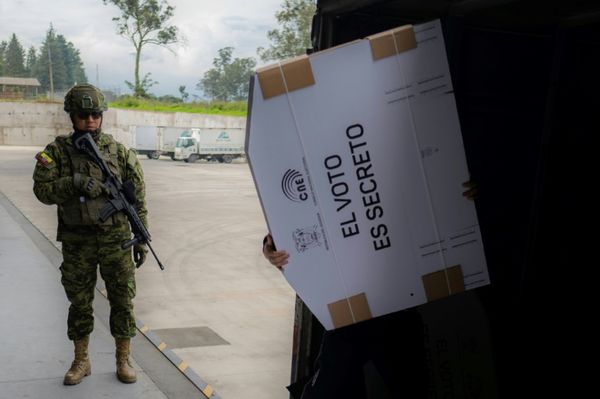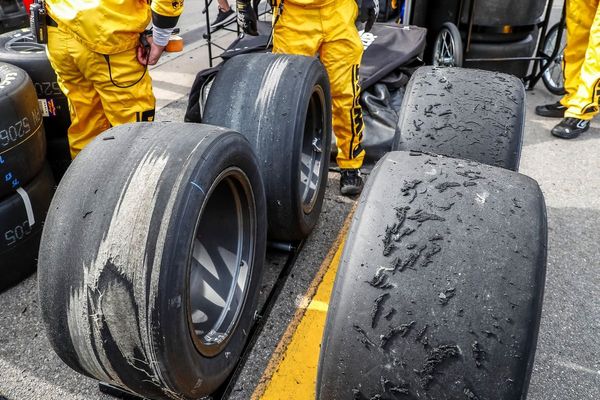
The number of active defects across Sydney’s train network has soared to almost 40,000, as a scathing review finds the performance of the transport system has been hit by recent outages and delays is “likely to worsen”.
Defects related to infrastructure such as tracks and electrical circuiting – but not the train fleet itself – have increased from about 23,000 in December 2018 to about 37,000 in April this year. This has coincided with plunging on-time performance and spiralling service cancellations.
The fragility of Sydney’s train network is largely the result of a network timetable introduced in November 2017 that attempted to maximise utilisation of the system but was “far too tight to effectively maintain service” and did not give “adequate access for maintenance of rail infrastructure”, an interim review of Sydney Trains has found.
The review’s findings are scathing of the handling of the city’s train system under the previous Coalition government. It found that while “black swan” events such as Covid, bushfires and floods – as well as industrial action and union strikes – affected performance, these factors could not totally explain the deterioration of the network since the timetable was introduced.
In fact, the review found the only time the network delivered punctuality in line with its targets – 92% of services running within five minutes of schedule – was during periods of lockdown and the strictest Covid movement restrictions. The 2017 timetable was introduced to increase network capacity in anticipation of growing patronage, an influx that never materialised due to the pandemic.
The review was announced about six weeks ago by incoming transport minister Jo Haylen after the Minns government won the March election. It will go on to examine the impact of the ageing train fleet and wider network before a final report in October, but has delivered a raft of interim recommendations to address reliability and resilience issues.
On Monday, Haylen acknowledged the role of union action that directly correlated with punctuality and cancellation spikes in 2022. “I’m not excusing the role of the unions,” she said, adding that she would aim to avoid the tensions with the transport unions the previous Coalition government encountered. “Instead of choosing conflict, we will be looking for solutions,” she said.
A major “maintenance blitz” over the next 12 months is the key recommendation of the interim report, which calls for an accelerated program to address defects and disruptions by targeting access to tracks for maintenance to periods of reduced patronage.
Total infrastructure related defects across Sydney Train network. Defects include structures, tracks, electrical and signalling. pic.twitter.com/azd9XPYUmh
— Elias Visontay (@EliasVisontay) May 22, 2023
Haylen accepted all of the review’s recommendations, but ruled out any service reductions to facilitate the maintenance blitz. She also ruled out additional spending to fund the maintenance, noting the “constrained financial times”.
Matthew Longland, the chief executive of Sydney Trains, also ruled out additional track work closures. Instead, he insisted track work maintenance could be carried out more efficiently to focus on defects causing reliability issues and by better organising workers.
The next year is seen as a window of opportunity for maintenance, with patronage still broadly between 70-80% of pre-Covid levels during weekdays. Additionally, the network is set for a new timetable when the metro line from Chatswood to Sydenham comes on to the network next year.
Of the roughly 37,000 infrastructure defects, 1,265 are classified as priority one – meaning they need to be inspected every seven days. A large chunk of the remaining need to be inspected every 28 days. The defects include surface issues on the tracks, as well as electric circuits and overhead wiring at stations.
The T1 line servicing Sydney’s western suburbs and north shore, as well as the city circle line, are suffering the most from serious defects.
The backlog of defects is above sustainable levels, and the review will work to determine what an ongoing level of defects is manageable.
The review found the safety of the network was not yet being impacted by the defects – but the head of the review, Carolyn Walsh, said she would be concerned if the issues highlighted were left unaddressed.
Punctuality of trains across Sydney pic.twitter.com/t73P6EFUpm
— Elias Visontay (@EliasVisontay) May 22, 2023
“Network performance is not recovering. Under current projections of planned maintenance activity, the performance of Sydney Trains’ rail infrastructure is unlikely to improve. In fact, it is likely to worsen,” the review said.
“There has been a focus on addressing safety critical and safety significant maintenance defects but under current projections (business as usual), the overall maintenance backlog will take a lengthy time to recover.”
Another recommendation was for better dissemination of information during outages, including better delivery of announcements to passengers stuck on trains who are often left in the dark as to why they’ve stopped.
The review also recommended that the Sydney Trains CEO report directly to the secretary of the transport department, and that Sydney Trains is more involved in designing the next new timetable so it is more accountable for performance.
Before the review was announced, the network suffered three significant incidents within a 17-day period in March that “caused substantial disruption to the network and major inconvenience to customers”.
Haylen said “we are running 100-year-old plus rail network and it needs to be maintained to keep running”.







